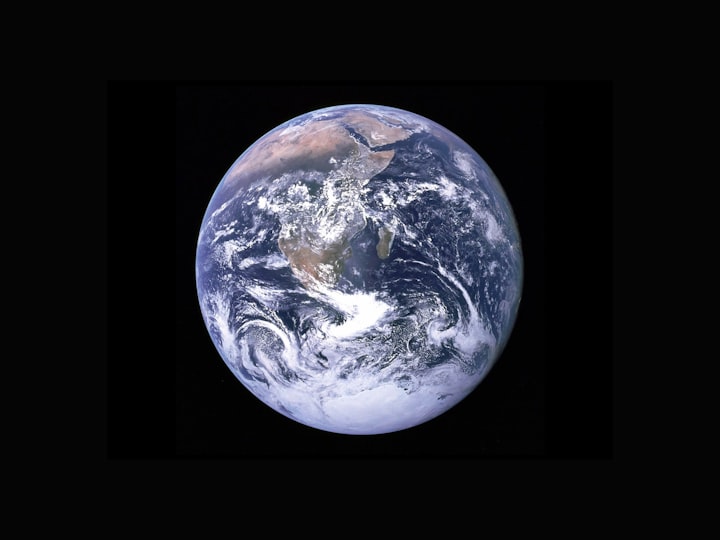The Day the Earth Stands Still: What Happens if the Planet Suddenly Stops Rotating
Exploring the Catastrophic Consequences of the Earth's Sudden Halt in Rotation
The Earth is a dynamic and ever-changing planet that has been rotating on its axis for billions of years. This rotation is what gives us our day and night cycle, as well as our seasons, ocean currents, and weather patterns. But have you ever wondered what would happen if the Earth suddenly stopped rotating? Would the consequences be catastrophic, or would life continue as normal? In this essay, we will explore the many effects that would result if the Earth stopped rotating.
To begin, we must first understand the basic principles behind the Earth's rotation. The Earth rotates on its axis at a speed of approximately 1,000 miles per hour at the equator. This rotation is caused by the Earth's gravitational pull on the sun, which causes the planet to spin around it. As the Earth rotates, it also creates a centrifugal force that causes objects on its surface to be pushed outward. This force is what causes the bulge at the equator and the flattening at the poles.
If the Earth were to suddenly stop rotating, this centrifugal force would disappear, and the bulge at the equator would collapse. This would cause the Earth to become more spherical in shape, with the poles bulging out slightly. The redistribution of mass would also cause changes in the Earth's gravitational field, which could have significant effects on ocean currents and weather patterns.
One of the most immediate effects of the Earth stopping its rotation would be the loss of the day and night cycle. The side of the Earth facing the sun would be in perpetual daylight, while the side facing away from the sun would be in perpetual darkness. This would have significant implications for both plant and animal life, which are adapted to the regular cycle of daylight and darkness.
Without the day and night cycle, photosynthesis would be severely impacted, as plants rely on light to produce energy. This could have a ripple effect throughout the food chain, as many animals rely on plants for their survival. In addition, the sudden shift in temperature between the daylight and dark sides of the planet could have a significant impact on weather patterns, potentially leading to more extreme weather events.
Another significant consequence of the Earth stopping its rotation would be the loss of the Coriolis effect. This effect is what causes the rotation of weather systems and ocean currents around the planet. Without the Coriolis effect, these systems would be disrupted, leading to unpredictable and potentially catastrophic changes in weather patterns.
The loss of the Coriolis effect would also have implications for navigation, as the rotation of the Earth is used to calculate the position of ships and aircraft. Without this rotation, navigation systems would need to be completely reworked, potentially causing significant disruptions to travel and transportation.
In addition to these more immediate effects, the Earth stopping its rotation would also have long-term consequences for the planet's climate and geology. The redistribution of mass caused by the collapse of the equatorial bulge would cause changes in the Earth's rotation axis, potentially leading to shifts in the planet's climate zones and changes in sea level.
The loss of the day and night cycle could also have implications for the planet's magnetic field. The Earth's magnetic field is generated by the motion of molten iron in its core, which is affected by the planet's rotation. Without this rotation, the magnetic field could weaken or even collapse, leaving the planet vulnerable to harmful solar radiation and cosmic rays.
Finally, the sudden stop of the Earth's rotation could cause significant seismic activity, as the redistribution of mass and changes in the planet's rotation axis could trigger earthquakes and volcanic eruptions. This could have significant implications for human populations, particularly in areas prone to seismic activity.
In conclusion, the sudden stop of the Earth's rotation would have profound and far-reaching consequences for the planet and its inhabitants. From the loss of the day and night cycle to the disruption of weather patterns and ocean currents, the effects of the Earth stopping its rotation would be felt in every aspect of life on our planet. The implications of this scenario are far-reaching and complex, with no clear solution or remedy.
It is important to note that while the scenario of the Earth stopping its rotation is purely hypothetical, it is still a possibility. There are a few potential scenarios in which the Earth's rotation could be slowed or even stopped, including the impact of a massive asteroid or comet, a significant shift in the planet's gravitational field, or changes in the Earth's core or mantle.
While the probability of any of these scenarios occurring is relatively low, the consequences of such an event would be catastrophic. It is therefore essential that scientists and policymakers continue to study the Earth's rotation and its effects on the planet, in order to better understand and prepare for any potential changes or disruptions.
In conclusion, the scenario of the Earth stopping its rotation is a fascinating and thought-provoking topic that raises many important questions about the nature of our planet and our place in the universe. While the likelihood of such an event occurring is relatively low, the potential consequences are significant, and it is essential that we continue to study and understand the complexities of the Earth's rotation and its effects on the planet and its inhabitants.
About the Creator
The Truth Speaks
The Truth Speaks is a compassionate and empathetic individual who seeks to understand and support others in their journey towards living a more authentic life.







Comments
There are no comments for this story
Be the first to respond and start the conversation.